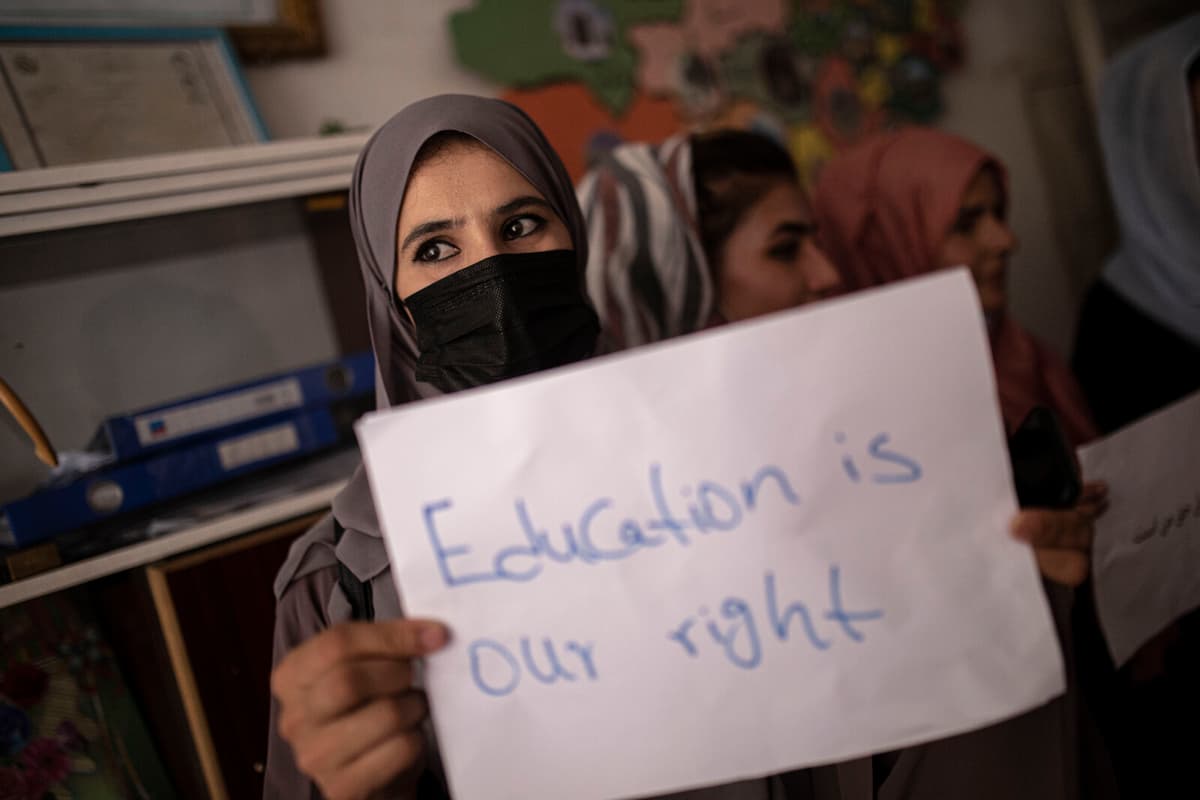Asman was going to become a doctor, but the dream died when the Taliban regained power over three years ago. Instead, she began studying to become a midwife – one of the few educations still open to women – in the hope of helping other women and contributing to Afghanistan's development.
Last week, when the class was about to take a test, they suddenly found out that they were no longer welcome. Go home – the school has to close, the teachers said.
We just cried. The teachers too. Everyone is stressed and depressed, she says to TT over a crackling phone line from Helmand in southern Afghanistan.
"Backed 200 years"
23-year-old Asman has a six-year-old daughter. With the Taliban in power, the future is pitch black, she says.
It feels like we've backed 200 years in time. Everything is dark. We can't do anything to improve our lives. How can I provide for my daughter and teach her things when I'm not allowed to learn anything myself?
The other day, my daughter said she wants to become a doctor when she grows up. I had to say "no, you can't".
The Taliban's decision to ban women from medical education extinguishes one of the last lights for Afghan women's freedom and rights, says Kajsa Johansson, chair of the Swedish Afghanistan Committee.
This was one of the few opportunities women had, so it becomes very symbolic.
It's so depressingly frightening. For us, it's about keeping hope up, believing that it's possible to change things, but such decisions are hard blows.
"Life-determining"
After the extremist Islamist takeover in 2021, school after school closed its doors to girls and women. Thousands then chose to educate themselves as nurses or midwives – two of the few professions where the Taliban still allowed women.
Videos are now circulating on social media of female healthcare students tearfully embracing each other after last week's news. In tears, they say goodbye to their future.
The ban is expected to worsen Afghanistan's already fragile healthcare system. The shortage of female doctors, nurses, and midwives – the only ones allowed to examine a female patient without a male guardian present – is already significant. The decision can therefore have life-determining consequences, says Kajsa Johansson at the Swedish Afghanistan Committee.
The long-term consequence will be that women and girls may not be able to receive healthcare.
The Taliban movement's ideology combines an extreme and fundamentalist interpretation of Islam with the ancient cultural code of Pashtunwali, named after the ethnic group Pashtuns who form the Taliban's backbone.
Formally, the movement was born in 1994, but the foundation was laid earlier in the Pakistani refugee camps where many Afghans fled from the Soviet invasion in 1979.
In 1996, the movement conquered Afghanistan's capital Kabul. It controlled large parts of the country until the US-led invasion in 2001, only to regain power in a lightning-fast offensive on August 15, 2021, after the US forces withdrew.
The Taliban's exercise of power is described as conservative, brutal, and arbitrary. Just like during their first time in power, the Taliban now rule with their interpretation of Islamic Sharia laws, which in practice means extreme oppression of women.
Women have been forced out of universities and from almost all jobs, music has been banned, and public executions and flogging have been reintroduced.






